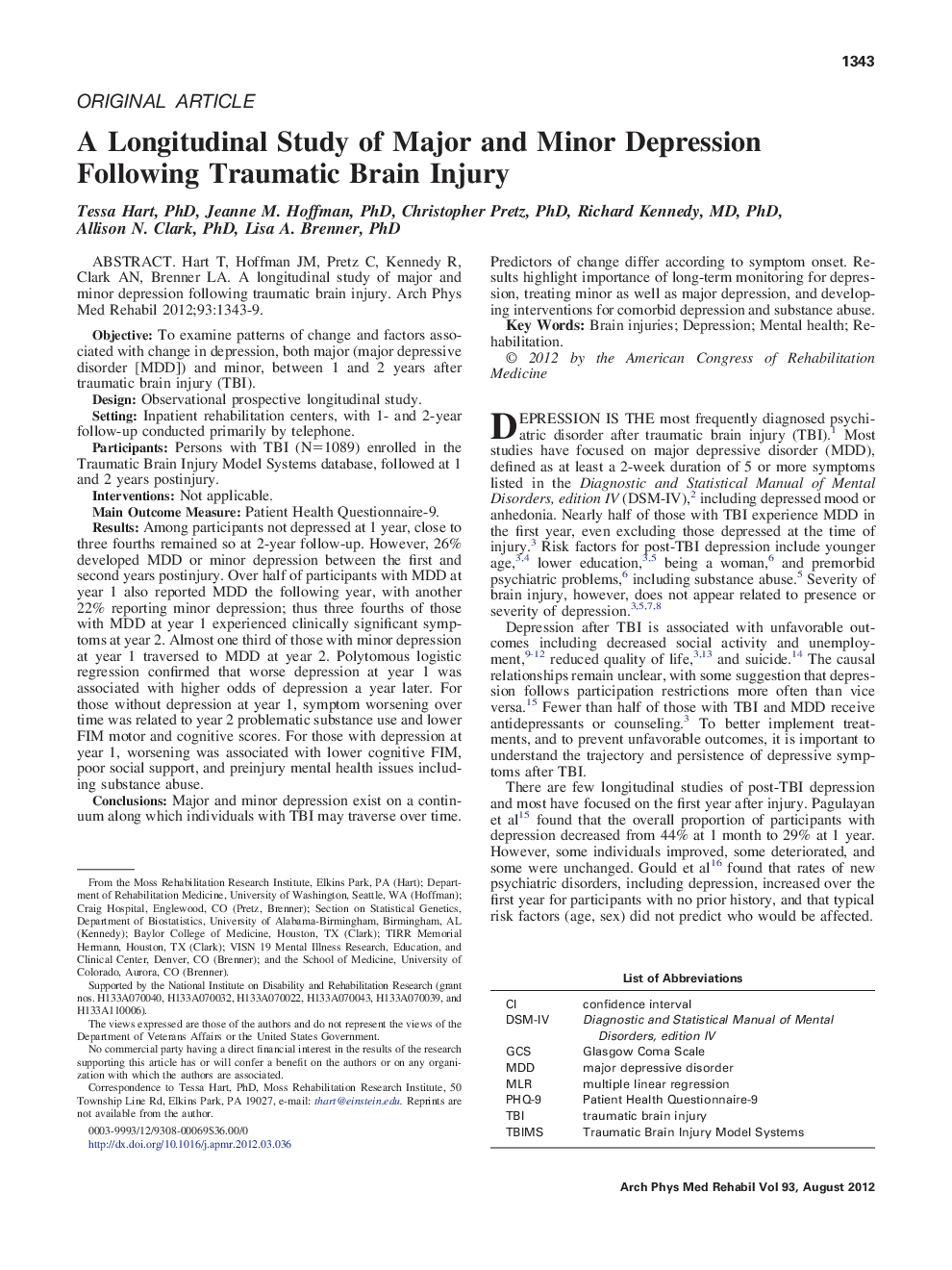| کد مقاله | کد نشریه | سال انتشار | مقاله انگلیسی | نسخه تمام متن |
|---|---|---|---|---|
| 3449555 | 1595722 | 2012 | 7 صفحه PDF | دانلود رایگان |

Hart T, Hoffman JM, Pretz C, Kennedy R, Clark AN, Brenner LA. A longitudinal study of major and minor depression following traumatic brain injury.ObjectiveTo examine patterns of change and factors associated with change in depression, both major (major depressive disorder [MDD]) and minor, between 1 and 2 years after traumatic brain injury (TBI).DesignObservational prospective longitudinal study.SettingInpatient rehabilitation centers, with 1- and 2-year follow-up conducted primarily by telephone.ParticipantsPersons with TBI (N=1089) enrolled in the Traumatic Brain Injury Model Systems database, followed at 1 and 2 years postinjury.InterventionsNot applicable.Main Outcome MeasurePatient Health Questionnaire-9.ResultsAmong participants not depressed at 1 year, close to three fourths remained so at 2-year follow-up. However, 26% developed MDD or minor depression between the first and second years postinjury. Over half of participants with MDD at year 1 also reported MDD the following year, with another 22% reporting minor depression; thus three fourths of those with MDD at year 1 experienced clinically significant symptoms at year 2. Almost one third of those with minor depression at year 1 traversed to MDD at year 2. Polytomous logistic regression confirmed that worse depression at year 1 was associated with higher odds of depression a year later. For those without depression at year 1, symptom worsening over time was related to year 2 problematic substance use and lower FIM motor and cognitive scores. For those with depression at year 1, worsening was associated with lower cognitive FIM, poor social support, and preinjury mental health issues including substance abuse.ConclusionsMajor and minor depression exist on a continuum along which individuals with TBI may traverse over time. Predictors of change differ according to symptom onset. Results highlight importance of long-term monitoring for depression, treating minor as well as major depression, and developing interventions for comorbid depression and substance abuse.
Journal: Archives of Physical Medicine and Rehabilitation - Volume 93, Issue 8, August 2012, Pages 1343–1349